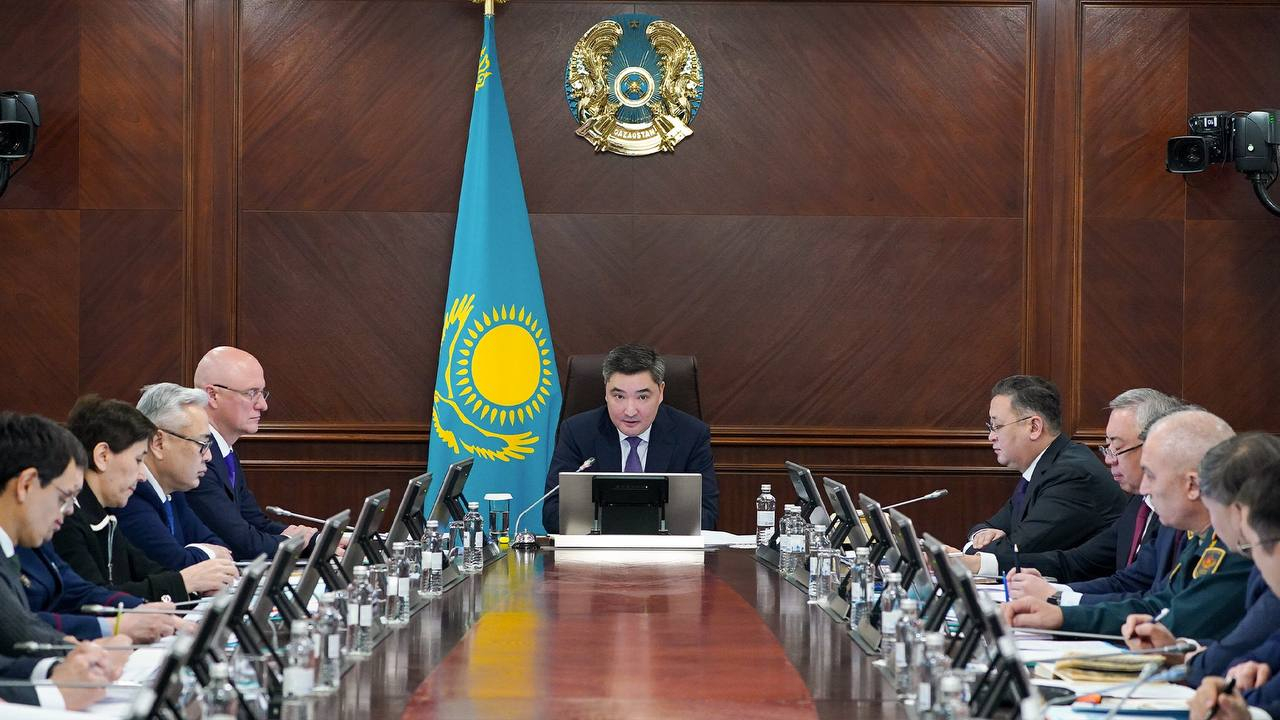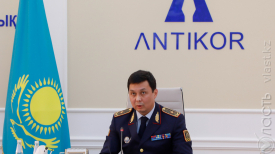Kazakhstan’s President Kassym-Jomart Tokayev appointed his former chief of staff Olzhas Bektenov to the post of prime minister on January 6. The government had resigned one day earlier, which came as a surprise to observers. Former prime minister Alikhan Smailov, as well as four other ministers, left their post. Smailov had taken office after the Bloody January events of 2022. The composition of the cabinet did not show significant changes.
At a cabinet meeting on February 7, Tokayev said that the government should work on improving the tax collection system and tackle the shadow economy. The government had earlier considered increasing the value-added tax from 12% to 16%. Lower-than-expected tax revenues have led the government to rely on transfers from the national oil fund to balance the budget in recent years.
A bill on child safety which would prohibit LGBT+ from fostering children without parental care was approved by the Senate and sent for ratification on February 7. The bill also includes plans to carry out a psychological test to determine the sexual orientation and gender identity of those applying for adoption and guardianship. The text of the law, which critics say resembles the anti-LGBT+ legislation in Russia, prohibits “a person of a non-traditional sexual orientation” from becoming a foster or an adoptive parent to orphan children.
Veronika Fonova, a feminist activist, carried out two one-person pickets in Almaty on February 3 and 6, calling for the local administration to allow a rally on International Women’s Day. Pickets, marches, and rallies need the prior approval of the mayor’s office. On February 9, Oyan, Qazaqstan! activist Temirlan Yensebek also protested outside the mayor’s office in Almaty (during a one-person picket agreed with the local authorities), calling for the approval of the March 8 rally.
In an open letter to Novaya Gazeta dated February 5, a former department head of the National Security Committee (KNB) said the protests that led to Bloody January in 2022 were organized by the government. With his heavy accusation, colonel Ruslan Iskakov pointed to the internal disorganization of the KNB in response to the protests and refused the charges brought against him. Iskakov’s letter represents one of the rare challenges to the government’s official version of Qandy Qantar.
Kairat Satybaldy, the nephew of former President Nursultan Nazarbayev, returned to the state budget an additional 44.6 billion tenge (around $100 million), the Anti-Corruption Agency said on February 8. Satybaldy was arrested in March 2022 and later sentenced to six years in prison for embezzlement. According to the Agency, Satybaldy has already paid back around 700 billion tenge ($1.5 billion). Observers have questioned the management of the illegally-withdrawn assets that have been so far recovered.
Karakalpak activist Nauryzbay Menlibayev was denied political asylum in Austria and was deported back to Poland on February 8. Poland had already refused asylum for Menlibayev, a citizen of Kazakhstan, in May 2023 and the activist turned to Austria. Human rights activist Leyla Nazgul Seiitbek told Vlast that European countries often reject Central Asian asylum seekers, because of pending charges of extremism and terrorism, which are often politically motivated.
The number of confirmed COVID-19 cases has increased significantly in Kazakhstan, the vice minister of healthcare Aizhan Yesmagambetova told Vlast on February 9. In December, the government recorded around 200 cases, whereas in January the number rose to 500. In provincial towns, the vice-minister said, there are also shortages of COVID-19 vaccines.
In preparation for the launch of the IPO, Air Astana set the price for its shares and securities in the local and international markets on February 9. The target price for each share, the company said, will be 1,073.83 tenge and whereas global depositary receipts (GDRs) will be sold at $9.5. In January, Air Astana said it would list securities and shares in the London Stock Exchange, Almaty’s KASE, and the Astana International Exchange. It plans to raise around $350 million, out of which it plans to invest $120 million in its development strategy.
ArcelorMittal, the former owner of Kazakhstan’s largest steel plant in Temirtau, posted profits for 2023 at a level ten times lower than the previous year, the company said on February 8. In 2022, the Luxembourg-based company earned $9.3 billion in profits, while last year the figure fell sharply to $919 million. Besides winding down its operations in Kazakhstan following a series of accidents, the company’s operations in Italy were put under state supervision, after faltering results.
Additional reporting by Fatima Yerbolek.
Поддержите журналистику, которой доверяют.








